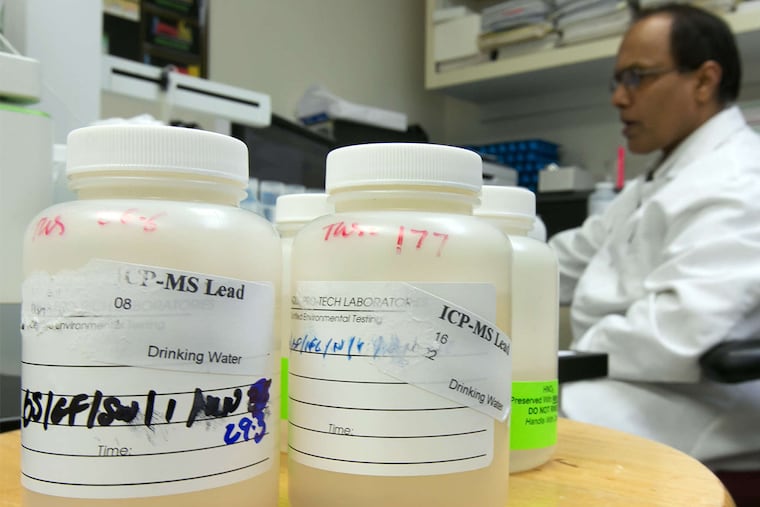Inquirer editorial: More homes should be tested for lead
Philadelphia's water supply doesn't have the high lead levels that endangered public health in Flint, Mich., but the city could do a better job of informing residents of the potential danger of lead leached from pipes in older homes.

Philadelphia's water supply doesn't have the high lead levels that endangered public health in Flint, Mich., but the city could do a better job of informing residents of the potential danger of lead leached from pipes in older homes.
Lead is a quiet poison that causes long-term damage to almost every system in the body while typically showing no obvious symptoms. Philadelphia children routinely test high for lead levels. Until recently, this was attributed almost exclusively to lead paint, but growing concern about lead-pipe corrosion has brought more attention to the necessity of testing drinking water.
An estimated 50,000 homes built in the city before 1950 may have lead service lines. Yet most of them have never been tested for lead in the drinking water. That's primarily due to a lack of public awareness, which is frustrating since free testing is available through the Philadelphia Water Department.
Even when the department mails residents to ask them to participate in free testing so it can collect data, it gets strikingly low response rates. In 2014, it sent out 8,000 mailings but received only enough responses to test 134 homes.
Meanwhile, department testing methods have come under scrutiny. A class-action lawsuit claims it has manipulated its lead-testing procedures to meet compliance standards. The suit also accuses the Water Department of conducting construction projects that cause unsafe levels of lead in drinking water without notifying residents.
It's clear that the department should make a greater effort to inform residents whose drinking water could be affected by construction. However, criticism of its low sampling population during testing ignores the fact that the department can only test homes that respond to its requests to participate.
One answer to that problem is for the department to double down on its efforts to raise public awareness about the importance of water testing and the availability of free testing. Mayor Kenney should also use his bully pulpit to stress the importance of water testing. Too many homes in the city are at risk, and too few have been tested.
City Council seems to be moving in the right direction with legislation that would require lead testing in schools and nurseries as well as require landlords to notify renters or buyers when a house has lead service lines.
The Water Department will be updating its testing methods to be in full compliance with the latest Environmental Protection Agency recommendations, which makes this a good time for Philadelphians to take advantage of the free testing it offers. This is particularly important for older homes with young children. Homeowners who find too much lead in their water may be eligible for a zero-interest loan program that begins July 1 and can help cover the cost of replacing service lines from the curb to the meter.
The Water Department maintains that it's the homeowner's responsibility to replace service lines to a residence and the pipes inside if lead levels test high. That being the case, the city should provide more assistance to low-income families, including renters, to replace pipes that could be leaching lead into their water.